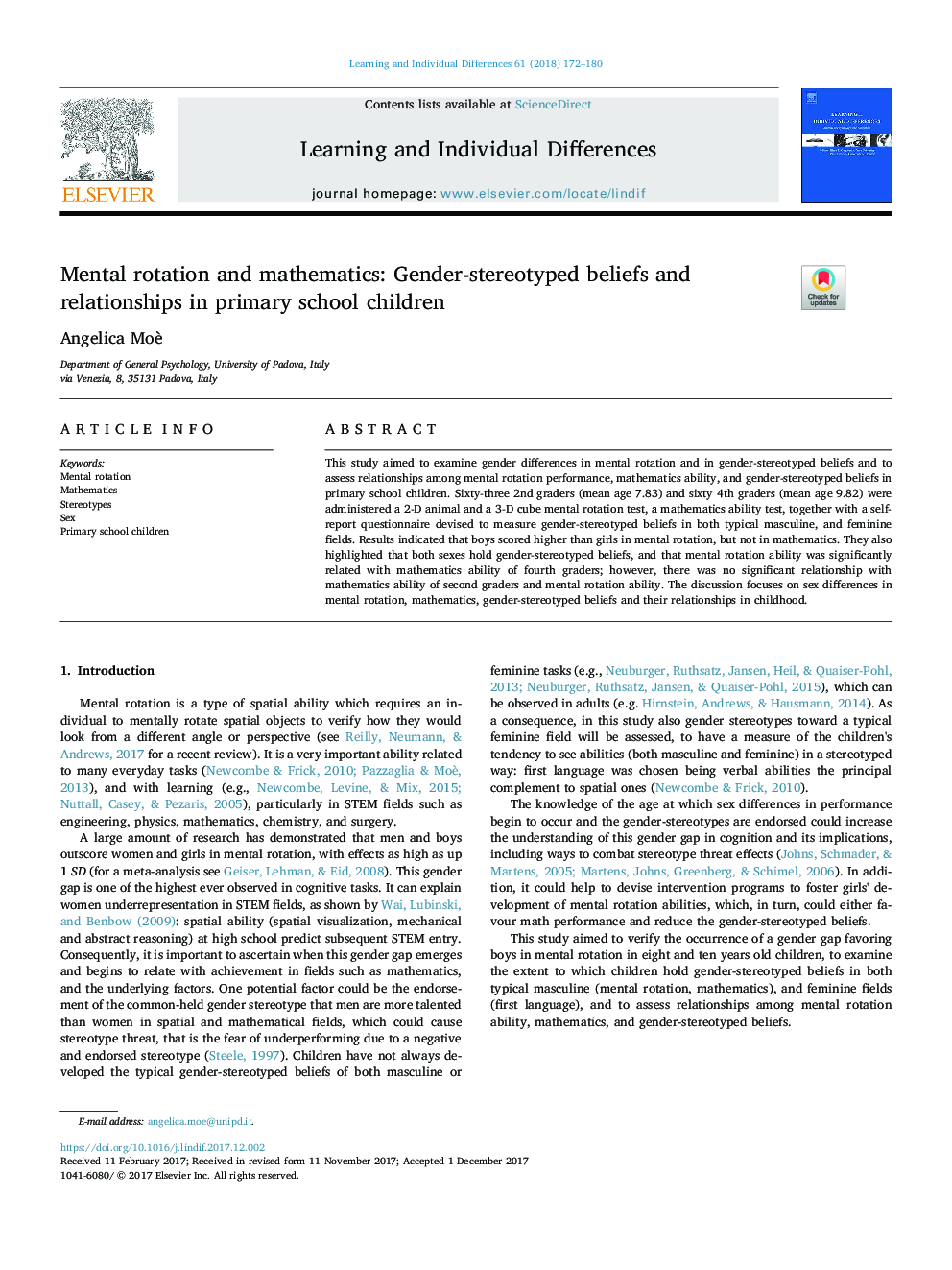| Article ID | Journal | Published Year | Pages | File Type |
|---|---|---|---|---|
| 6844541 | Learning and Individual Differences | 2018 | 9 Pages |
Abstract
This study aimed to examine gender differences in mental rotation and in gender-stereotyped beliefs and to assess relationships among mental rotation performance, mathematics ability, and gender-stereotyped beliefs in primary school children. Sixty-three 2nd graders (mean age 7.83) and sixty 4th graders (mean age 9.82) were administered a 2-D animal and a 3-D cube mental rotation test, a mathematics ability test, together with a self-report questionnaire devised to measure gender-stereotyped beliefs in both typical masculine, and feminine fields. Results indicated that boys scored higher than girls in mental rotation, but not in mathematics. They also highlighted that both sexes hold gender-stereotyped beliefs, and that mental rotation ability was significantly related with mathematics ability of fourth graders; however, there was no significant relationship with mathematics ability of second graders and mental rotation ability. The discussion focuses on sex differences in mental rotation, mathematics, gender-stereotyped beliefs and their relationships in childhood.
Related Topics
Social Sciences and Humanities
Psychology
Developmental and Educational Psychology
Authors
Angelica Moè,
